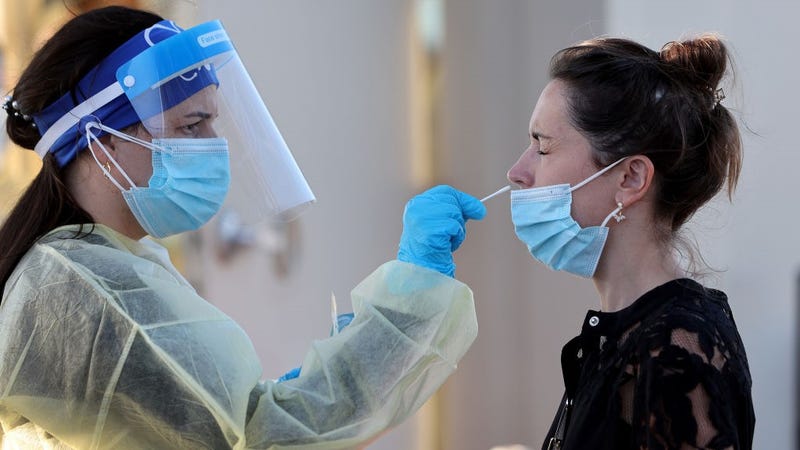
Scientists are now warning that because of the fast spreading omicron variant, it won't be the last variant of COVID-19 to exist.
The experts aren't sure what the next variants will look like in terms of symptoms or if the current vaccines will be able to work successfully against them.
“The faster omicron spreads, the more opportunities there are for mutation, potentially leading to more variants,” Leonardo Martinez, an infectious disease epidemiologist at Boston University, said.
Research has shown that omicron is at least twice as contagious as delta and as least four times as contagious as the original COVID-19 variant.
On Jan. 14 there was a reported 933,249 new cases in the United States with a 7-day average of 807,563 new cases.
The omicron variant is more likely to reinfect someone that has already had COVID-19 than the delta variant. It has also caused “breakthrough infections” in vaccinated people.
“It’s the longer, persistent infections that seem to be the most likely breeding grounds for new variants,” Dr. Stuart Campbell Ray, an infectious disease expert at Johns Hopkins University, said. “It’s only when you have very widespread infection that you’re going to provide the opportunity for that to occur."
Because of the easy spread of omicron, it's possible that it can infect and stay with people who have weakened immune systems, creating time to develop new mutations.
There is hope that omicron could become like the common cold, as it appears to be less severe of a disease than delta.
Dr. Ray went on to explain how the virus can replicate and develop more mild symptoms in people.
“People have wondered whether the virus will evolve to mildness. But there’s no particular reason for it to do so,” Ray said. “I don’t think we can be confident that the virus will become less lethal over time.”
He added that it could be possible for someone to get double infected with omicron and delta, creating a “Frankenvariants."
WHO Director-General Tedros Adhanom Ghebreyesus hopes to see 70% of people in every country around the world to be vaccinated by mid-2022 to help protect them from future variants. 60% of the world population has received one dose of a vaccine, with 9.71 billion doses administered worldwide.
As of Jan. 15, 75.5% of the American population has received at least one dose of a vaccine, 62.9% have been fully vaccinated, and only 24.1% have received a booster shot.
“These huge unvaccinated swaths in the U.S., Africa, Asia, Latin America and elsewhere are basically variant factories,” Dr. Prabhat Jha of the Centre for Global Health Research at St. Michael’s Hospital in Toronto, said. “It’s been a colossal failure in global leadership that we have not been able to do this.”


